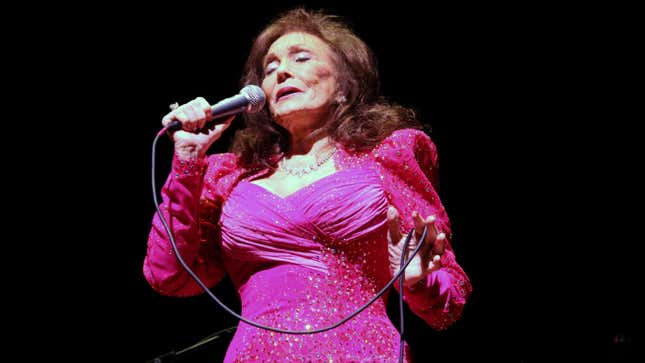Loretta Lynn, ‘Queen of Country Music,’ Dies at 90
Her sharp and snarky twang championed working class women and promoted birth control. Later in life, she supported Donald Trump.
EntertainmentMusic

Loretta Lynn, the most awarded woman in country music, passed away Tuesday morning at 90 at her home in Hurricane Mills, Tennessee, her family said in a statement. Born a coal miner’s daughter in Butcher Hollow, Kentucky, the second of eight children, she cut an indelible mark on country music with her sharp, snarky, twang. Dubbed by some the “Queen of Country Music,” Lynn wrote songs that championed birth control in the 1970s and snapped back at an industry dominated and morally supervised by men.
She became outwardly Republican in her older age, aligning herself with the majority of white women from Kentucky in vocally supporting politicians Donald Trump and Ted Cruz. While that certainly and deeply complicates any kind of “feminist” legacy, the messages in much of her music did, at the time, contradict conservative ideas of a woman’s place in the world.
Lynn’s colossal discography collected and communicated working women’s anger at the hypocrisies of the system. Her songs tackled themes like unwanted sexual attention (“Don’t Come Home A-Drinkin’ (With Lovin’ On Your Mind)”) or the stigma of divorce (“Rated X”). Even her songs that fell more in line with traditional country music motifs, like loyalty and cheating, (“Fist City,” “You Ain’t Woman Enough”) were sung with a fierce grit that made her stand out from her more cordial and sweet-voiced contemporaries.
-

-

-

-

-

-

-

-

-

-

-

-

-

-

-

-

-

-

-

-

-

-

-

-

-

-

-

-

-

-

-

-

-

-

-

-

-

-

-

-








































